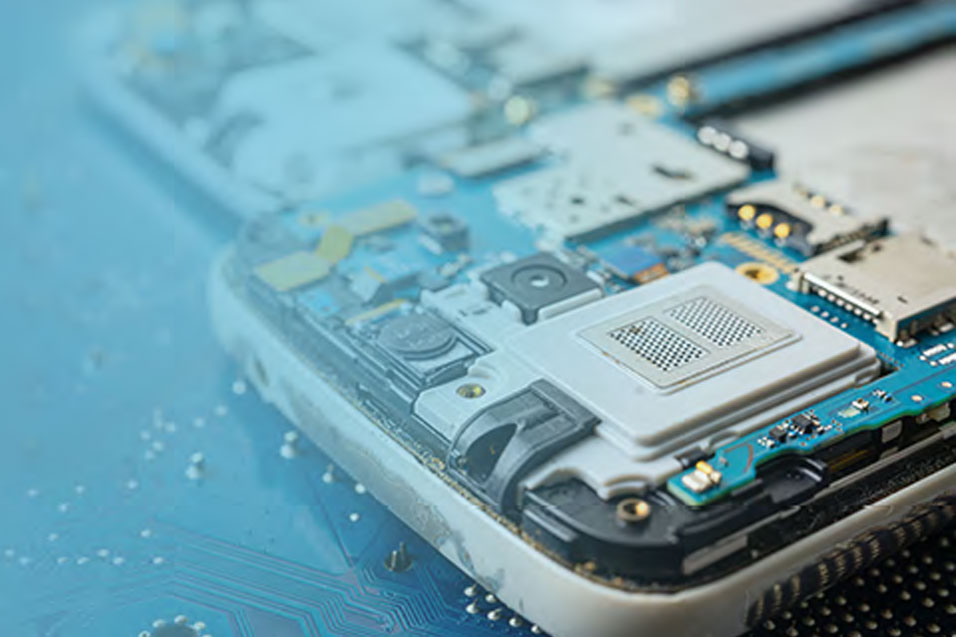‘Smart’ means— ‘intelligence’ or ‘acumen’. When someone demonstrates a better and faster way of completing tasks, we call them smart. Similarly, Smart Test Automation can be defined as a process that makes test automation to perform better by increasing efficiency at reduced cost.
Testing frameworks are an important part of any successful automated testing process. They help in reducing maintenance costs & testing efforts. They also provide a higher return on investment (ROI).
Benefits of a Test Automation Framework: Utilizing a framework for automated testing increases a team’s test efficiency and improves test accuracy & speed. They are essential to an efficient automated testing process for a few key reasons:
Less maintenance costs
Improved test efficiency and accuracy
Maximum test coverage
Minimal manual intervention
With the help of automation testing tools, the quality engineering teams can run a huge volume of tests. However, the testing processes are not thoroughly optimized. There are challenges in the current software testing scenario that are not resolved by the test automation:
100% automation? Not really!
Not every test case can be automated. Therefore, 100% automation cannot be achieved in practical scenarios. If we consider areas such as usability, interface, or recuperation, implementing manual testing makes more sense.
Automation tool
Nowadays, there is a variety of testing tools, ranging from free and open-source tools to commercial tools supporting different testing types and technologies. Each tool tends to support a particular situation. Vendors of testing products usually exaggerate the ability of their products and often assume that they have a “secret sauce” for all automation tastes. This causes misconceptions and confusion when selecting the appropriate testing tool that satisfies the technology needs. To make informed decisions, leveraging Product Testing Services can help navigate these challenges and identify the best tools for your specific requirements.
Sometimes the tool that you choose may not address all the challenges. In such scenarios, if you invest in another tool, it may end up being expensive. Untrusted test automation can only lead you to finally opt for a high percentage of manual testing.
These common situations can be well managed with preplanning and by implementing the right testing strategy. However, intelligent automation has the potential to redefine the ways of testing and solve complex challenges by going a step further and providing the capability to automate non-routine testing procedures through AI/ML.
What is Intelligent Automation?
Intelligent test automation (ITA) is a method for software testing that uses Artificial Intelligence (AI) algorithms to make automation more stable, help author scripts, and generate analytics for more efficient debugging and decision making.
Intelligent test automation is a blend of machine learning, process automation, and artificial intelligence that can help in implementing smart testing processes based on adaptable workflows. It works as a supplementary layer that fixes most of the challenges of automation. It reduces manual efforts and helps in gaining more skills that self-evolve.
Test Automation is a cost-effective and proven approach for the improvement of software development. Thus, choosing the best test automation framework can prove pivotal to your test results and QA timeframes. A typical automation framework provides a suitable condition for the smooth execution of test plans and also helps in generating repeatable output. These are exclusive tools that assist you in your everyday test automation tasks. Whether it is a web testing tool, an action recording tool, or a test runner, it provides you more time to do quality checks by eliminating all the hard work from building test scripts. For comprehensive security, integrating Security Testing Services can ensure robust protection alongside your automation efforts.
Here is how AI and ML-based intelligent test automation can transform the testing processes and make the development cycle efficient, smarter, and faster:
Here is a fine comparison between Automation and Intelligent Test Automation based on some key parameters:
| Parameters | Automation | Intelligent Automation |
| Process & Technology | Automates repetitive and rule-based processes. | Intelligent Test Automation focuses on processes that are driven by data and leverage cutting-edge technologies such as Artificial Intelligence (AI) and Machine Learning (ML) technologies. |
| Execution of Test Cases | Higher maintenance costs as the test cases are mostly not reusable, which also leads to reduced test case creation efficiency. | Lower maintenance costs as the test cases are created and executed automatically with a model-based testing approach. |
Optimizing test suite
One major problem faced during software development and testing processes is wastage of effort, time, and resources due to overengineering resulting in a huge backlog. AI-driven testing can help clear the backlog and focus on adapting the cycle as it develops. It can identify repetitive and unrequired test cases, thereby, removing the duplicates and improving traceability.
Instant feedback
With intelligent test result analysis, it is possible to improve the response time with instant feedback. AI-driven smart analytics can identify critical areas and implement test cases automatically. AI can take over not only the highly repetitive tasks but also the cases with the same input and output. These scenarios can be mimicked based on their historical information.
Predictive and Prescriptive
AI/ML-based implementation focuses on a vast amount of test data that is generated by the automation suites. It analyzes the test results, detects bugs, and predicts the quality of the test cases. This data can be used as a key parameter in deciding the next point of action. Such smart approaches to detect action failure can predict the critical faults and prescribe the solution in a defined time.
Defect analysis
Intelligent test automation can dive deep into the automation suite to fetch insights on the root cause of failures. This can help find a preventive approach for the defect occurrence. Consolidated information from the test history and automation suites can provide insights that can help avoid failure conditions.
A leading technology enterprise operating in the fields of optoelectronics was facing challenges due to the lack of test automation and post-release field testing issues resulting in longer release cycles for each product variant. Also, manual testing scenarios for common modules across multiple product variants had become cumbersome with unreasonable effects on coverage, cost, and time to market. To address these issues, they explored UI/UX Services to enhance their testing processes and streamline the user experience.
eInfochips leveraged Tricentis TOSCA for the Script-less test automation of a common software platform with customized applications for each product variant. With Tricentis TOSCA’s model-based test automation approach, we reduced maintenance overhead across different devices and improved maintainability, while eliminating the need for costly and time-consuming test automation frameworks. Also, it enabled the customer to expand the scope of testing while freeing resources for the analytical and strategic work that truly requires human intelligence, here is the detailed case study.
By leveraging the expertise of in-house automation specialists and certified practitioners, we provided Tosca consulting, implementation, and managed services. With our QAOps approach, we can help create tests quickly using the MBTA (Model-based Test Automation) method, seamlessly integrate testing into agile and DevOps workflows, and improve overall quality.
To know more about our quality engineering services, speak to our experts.













